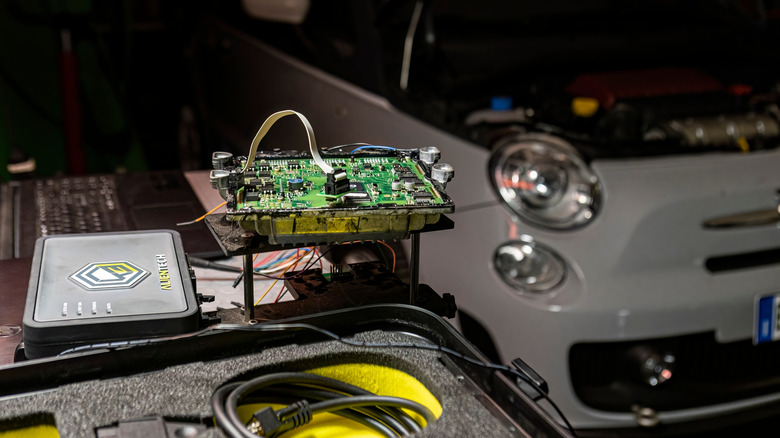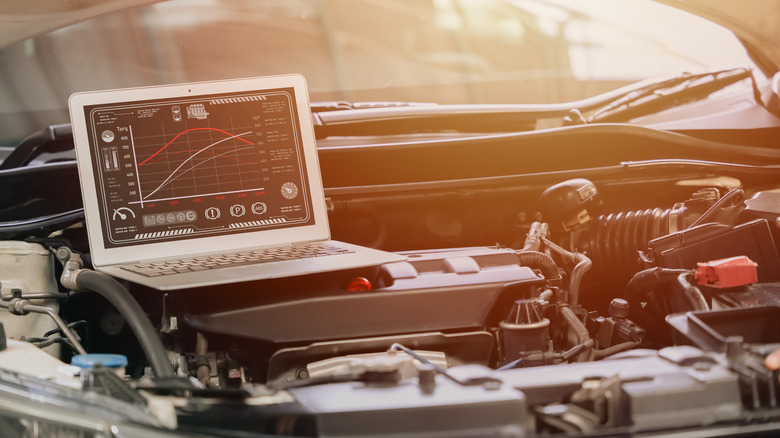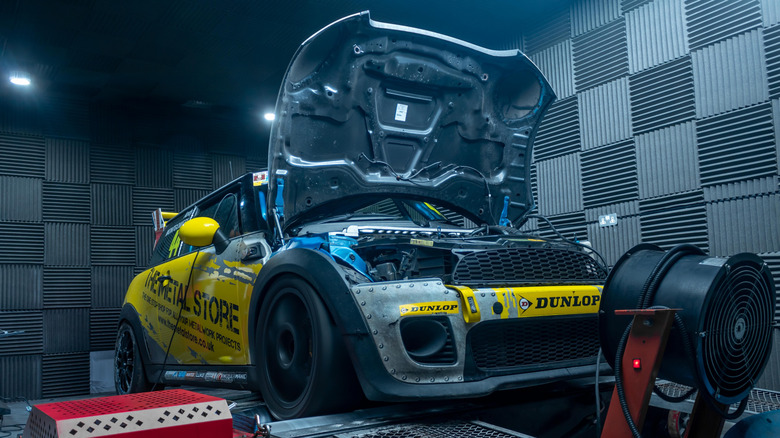
ECU tuning is one of the easiest ways to get some more horsepower out of your engine in modern cars. The ECU, or the engine control unit, is essentially the brains of the vehicle, and it controls all the electronic
systems, as well as your engine through various sensors and modules.
Every car comes with a tune from the factory which has set parameters for how much power the car needs to produce in different circumstances. When we talk about ECU tuning, that means altering these parameters to make more power or sometimes even boost your car's MPG. There are various ways to do this, and some modern cars also allow you to flash new tunes using out-of-box solutions which directly connect to your OBD port.
ECU tuning does enhance your vehicle's performance. This might help you attain a few more horsepower from the engine, but more importantly, it can alter the power band, which makes your vehicle feel more responsive. With supporting mods, you can tune your car to make even more power. Manufacturers often leave a lot of margin, because they expect a car to function in various situations.
Read more: The 5 US States With The Highest Speed Limits (And 5 With The Slowest)
How Does ECU Tuning Work?

All modern cars have an array of sensors. This includes the MAF (mass air flow) sensor, engine temperature sensor, engine speed sensor, and also things like air volume sensor. An internal combustion engine needs three things to work: ignition, air, and fuel. Adding more fuel means that there should also be enough air, in order to achieve a complete combustion.
When tuning a vehicle, the tuner alters these parameters in different ways. This might include adding more fuel into the engine, changing the timing, or allowing more air to come into the combustion chamber before combustion takes place. This, in turn, increases power, and a good tune will also improve the combustion as a whole.
Some manufacturers will allow you to alter these parameters from the OBD-II port itself, while some ECUs need more extensive. Sadly, many modern cars also come with locked ECUs, so that tuners cannot access the data and tune the vehicle.
What Sort Of Gains Can You Expect From A Tune?

Most modern cars with electronic fuel injection can be tuned, but the biggest thing that people ask for when they are ECU tuning is the amount of the performance gains. This totally depends on the type of engine that your vehicle has.
For example, naturally aspirated engines will see only marginal performance gains when compared to a turbocharged engine. This is because the turbocharger can be made to force more air into the engine, while the naturally aspirated engine is limited to the amount of air being pushed by the atmosphere.
To make more power from the engine, you might have to upgrade the intake system, the exhaust system and the cooling system, as generating more power also means that the engine will generate more heat. This is one of the reasons why tuning is very often done in stages, with stage 1 being a simple tune with stock hardware, stage 2 being with some supporting mods and stage 3 being all out turbo replacements and major changes done to the engine internals.
Regardless of the power gains, one major advantage of tuning is that it alters your power band, and good tunes will always give the car more usable performance across the power band.
Want the latest in tech and auto trends? Subscribe to our free newsletter for the latest headlines, expert guides, and how-to tips, one email at a time.
Read the original article on SlashGear.











